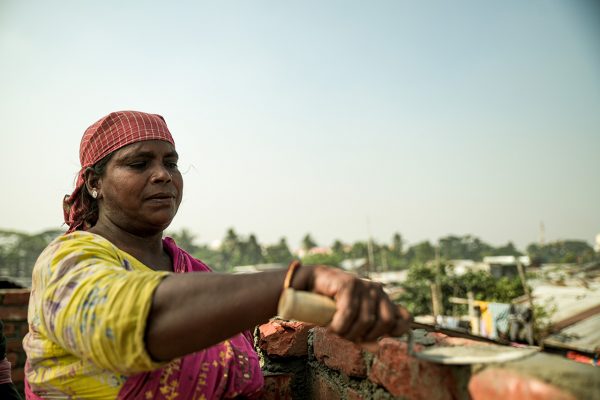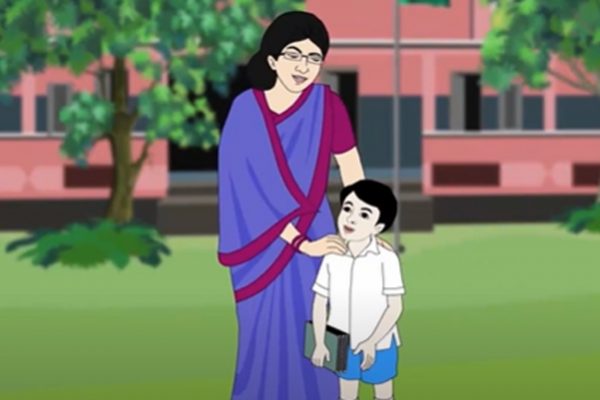Creating opportunities for youth in Bangladesh’s retail sector
Reading Time: 3 minutes
Bangladesh’s retail sector is an important contributor to the country’s economic growth. It has significant potential to provide opportunities for career progression for young people – but only if young people can access the relevant skills training. One new project is providing just that, and seeing impressive initial results.
Nahidul’s work day typically starts with checking into the showroom at 9am. He works as a salesperson at Walton, a renowned electronics appliance company in Bangladesh which employs over 30,000 people. His sales approach and depth of product knowledge are highly valued.
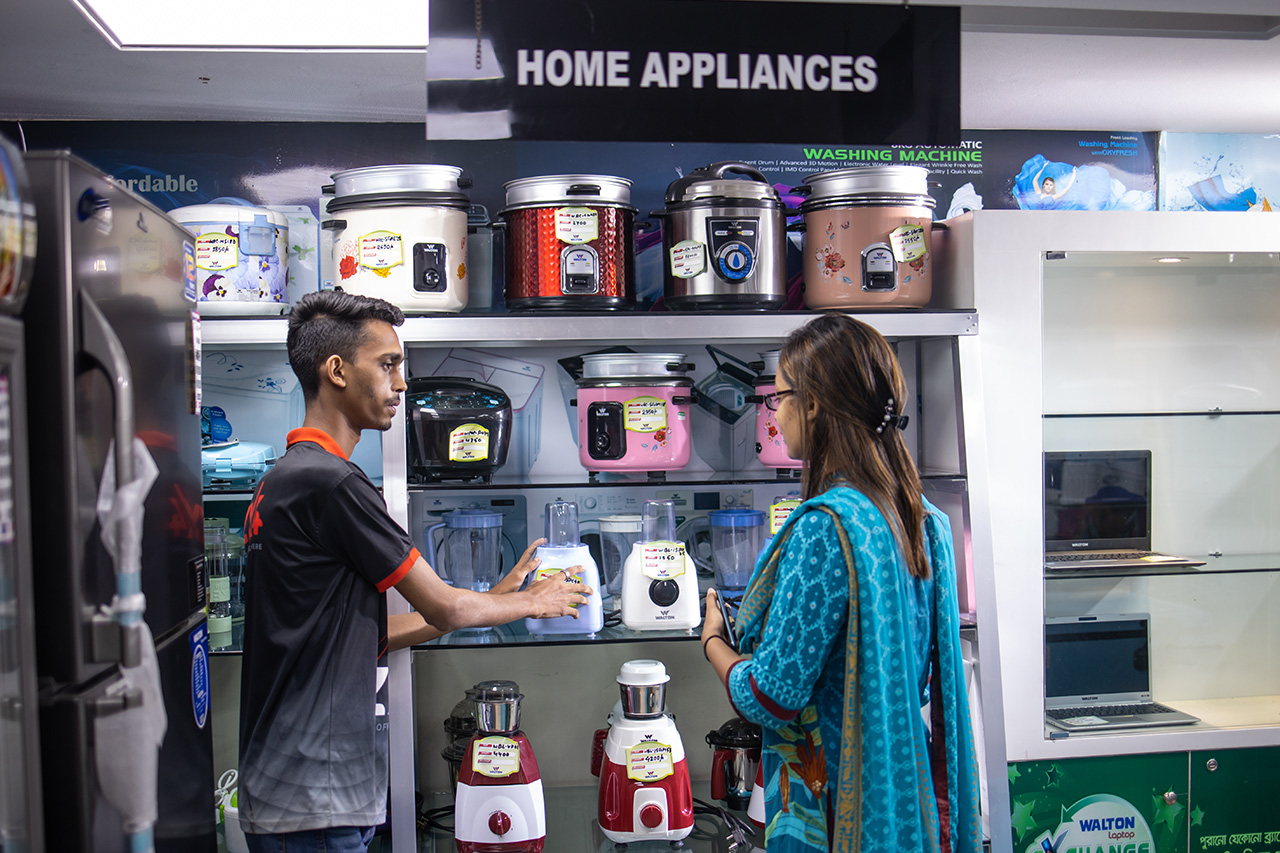
Nahidul at his workplace, Dhaka, Bangladesh. Photo: Shanjir Hossain © BRAC 2021
Nahidul works in Bangladesh’s retail sector, which employs over six million people and is growing fast. Much of the growth can be attributed to the country’s rapid urbanisation. The sector has the potential and the demand to employ huge numbers of skilled young people, but vacancies remain unfilled at many super shops. The conundrum can be attributed to a growing skills gap.
Our staff working at the field level have identified five key reasons for this gap;
Firstly, modern retail is an urban concept, but retail sales associates mostly hail from rural or semi-urban areas. Their socio-economic backgrounds are very different from the consumers they work with. Consequently, their lifestyles are very different – and their likes are very different. Often, they even speak different dialects of the same language.
Second, many employees lack the product knowledge necessary to provide quality customer service because they do not use the products themselves. They are unaware the products exist, and when introduced to them in their workplace for the first time, they take a long time to understand how to use them.
Thirdly, the communication, negotiation and conflict resolution skills needed for retail can often be complex – and are not often included in training courses. Training often focuses on the hard skills – technical and product knowledge skills, leaving out the soft skills that are vital for attracting the attention of customers towards certain products, influencing their buying decisions and closing a transaction – or dealing with a difficult situation.
Fourth, retail sales associate roles are perceived as glamorous. This is far from everyday reality. Long working hours, standing for extended periods of time, lifting heavy objects, and facing difficult customers are challenges every employee faces almost on a daily basis. Young people who are unaware of this enter the sector only to be disappointed and leave their jobs after a short period of time, leading to high turnover rates across the sector.
Fifth, employees often do not have adequate knowledge about career opportunities, so they are unable to perceive career progression – which also contributes to turnover.
Tackling these challenges: The first accredited retail sales module in Bangladesh
Progressing the retail sector by improving decent employment (PRIDE) equips learners from low-income backgrounds with retail sales training. It is the first retail sales training module accredited by the Bangladesh Technical Education Board, designed in discussion with the retail sector and providing 360 hours of training through a blend of classroom and apprenticeship approaches.
At the start of each training phase, frontline staff members conduct door-to-door visits to households in Dhaka, Chattogram, Khulna, and Sylhet, identifying people who could most benefit from the training.
Learners are trained on competencies required to work effectively in retail sales, such as product knowledge, occupational health and safety, merchandising, billing, product display and payments. They also learn soft skills like communicating with customers and negotiation, and are made aware of the challenges they are likely to face at the workplace. To make the training practical, group work, discussions and role plays are used.
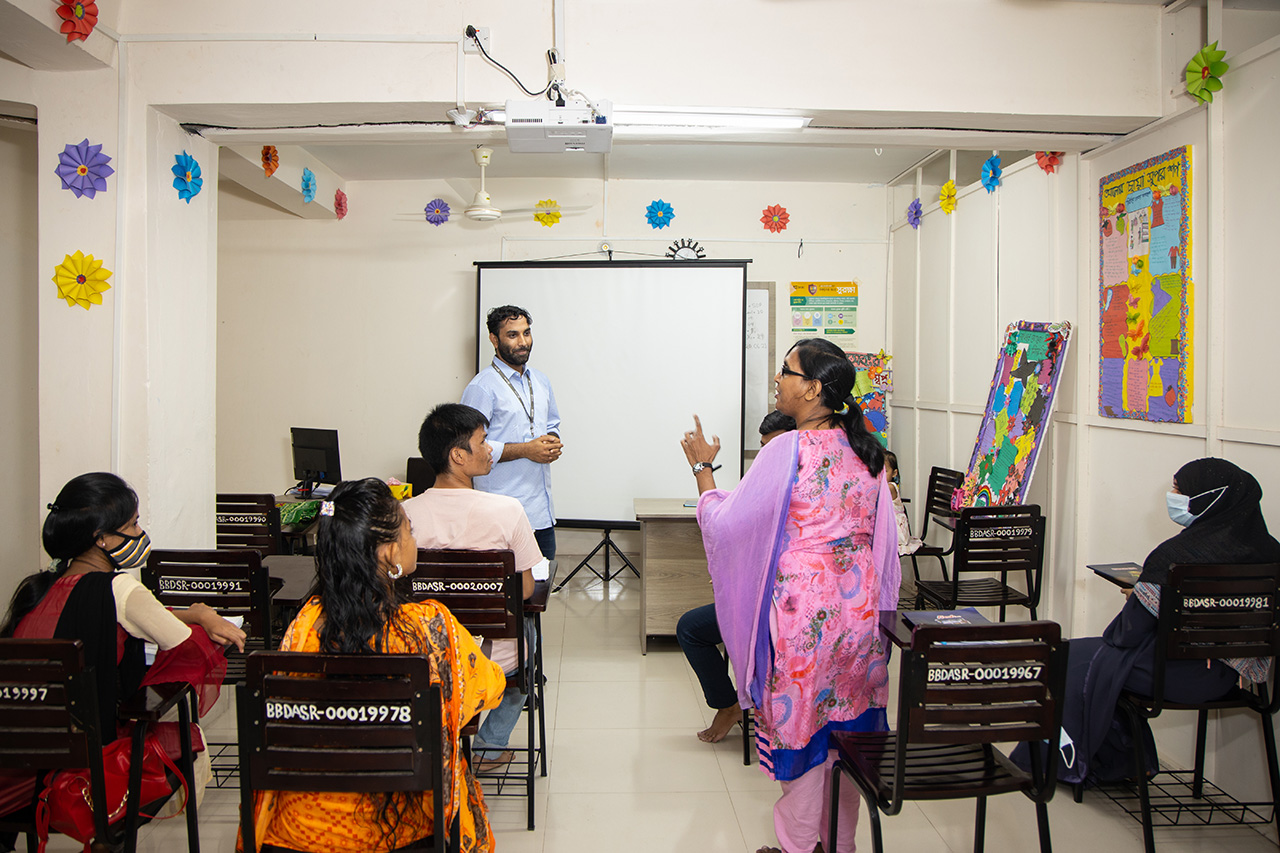
Retail sales classroom training session at the project training centre, Dhaka © Shanjir Hossain, 2021
Staff members visit learners every week to ensure training is being conducted in an environment conducive to learning, and trainers are following the curriculum. There is a strong emphasis on monitoring, evaluation and constantly seeking feedback from staff and clients to ensure continuous improvement.
At the end of the training sessions, trainers help learners to make CVs and conduct mock interviews. They then match them with jobs, and follow up on their progress for up to a month after placement.
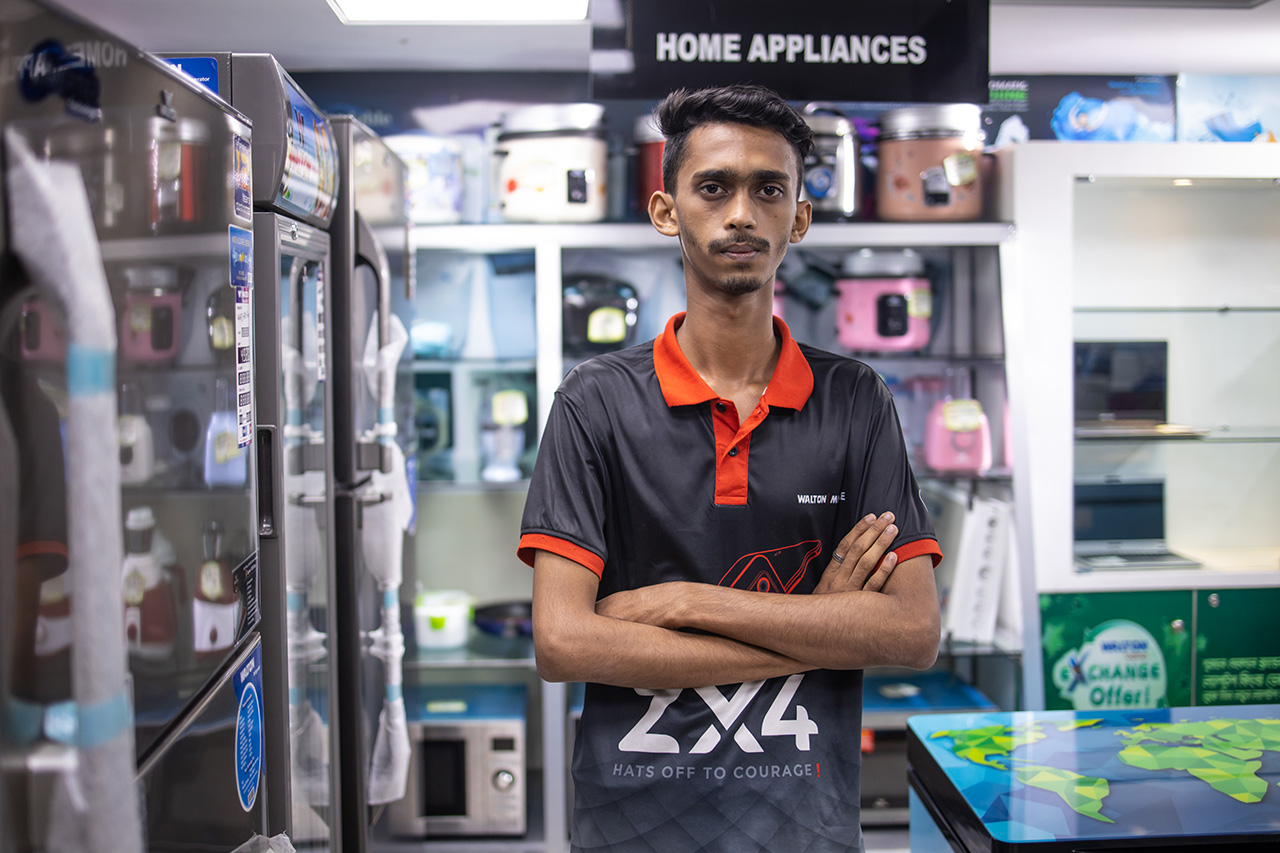
Nahidul, Dhaka © Shanjir Hossain, 2021
Nahidul was in the first batch of learners in the project, which began in January 2021. Within 15 days of completing the training, he got his first job, with a salary over 30% higher than the government standard of BDT 8000/- for an equivalent level role. Nahidul’s achievement is encouraging him to dream big in other areas – his goal now is to complete his education, which he dropped out of because of his family’s financial situation.
1,200 young people have been equipped with retail sales skills so far, and 67% of them are employed in retail outlets in Bangladesh. By 2023, the project expects to train 5,200 young people, of whom 60% will be female and 7% will be persons with disabilities. The approach has huge potential for scaling – it’s quick (the 360 hours can be completed in as little as 2.5 months), the mixed practical/theoretical approach ensures cost-effectiveness, and the employment statistics show it works. As countries around the world continue to urbanise, and similar skills gaps appear in many sectors, PRIDE demonstrates an approach which could see more young people working and more sectors able to grow.
Cover photo: Shanjir Hossain, 2021 © BRAC
BRAC Skills Development Programme has been providing alternative livelihood solutions and learning pathways for young people since 2015. The programme is working towards gender equality, disability inclusion, skills – technical and vocational training, decent work and economic growth.
Nasifa Sefat Sultan is Knowledge Management and Communications Specialist at Skills Development Programme
Mohammad Sadique Hasan is Programme Manager at Skills Development Programme.


